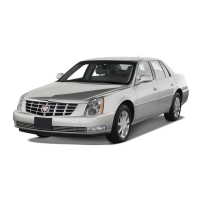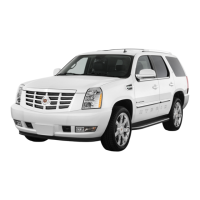
Do you have a question about the Cadillac 2010 CTS Sport Sedan and is the answer not in the manual?
| Brand | Cadillac |
|---|---|
| Model | 2010 CTS Sport Sedan |
| Category | Automobile |
| Language | English |
Explains the operation and use of the vehicle's keys and locks, including remote entry systems.
Details on opening and closing vehicle doors, including trunk and liftgate operation.
Information on the anti-theft alarm system and immobilizer function for vehicle security.
Covers convex, power, folding, and heated exterior mirrors and their adjustments.
Details the automatic dimming rearview mirror and its operation.
Information on power windows, express features, and the window lockout button.
Describes the operation of the vehicle's sunroof.
Guidance on proper installation and adjustment of head restraints for occupant safety.
Instructions for adjusting manual and power front seats, including lumbar support.
Details on folding rear seats for access to the trunk and cargo area.
Explains how to properly wear safety belts and safety considerations for all occupants.
Comprehensive guide on selecting, installing, and using child restraint systems safely.
Information on airbag types, deployment, and safety precautions for airbag-equipped vehicles.
Provides a visual guide to the layout and components of the vehicle's instrument panel.
Details the operation of various controls like steering wheel adjustment, horn, and wipers.
Explains the meaning and function of various warning lights, gauges, and indicators on the instrument cluster.
Describes the Driver Information Center (DIC) functions, messages, and display menus.
Lists and explains various vehicle messages displayed on the DIC for driver notification.
Guides on customizing vehicle features such as lighting, locks, and chimes through the DIC.
Overview of OnStar services, features, and how the system operates for safety and convenience.
Instructions for programming and operating the universal remote system for garage doors and other devices.
Introduces the audio system and provides safety advice for driver distraction.
Details on operating the AM/FM radio, selecting stations, and using the Radio Data System (RDS).
Information on using the CD/DVD player, MP3/WMA playback, and HDD/USB device support.
Guides on Bluetooth connectivity, voice recognition, pairing, and managing phone calls.
Explains the operation of the dual automatic climate control system for heating and cooling.
Describes the location and operation of air outlets and how to adjust airflow direction.
Information on replacing the passenger compartment air filter for optimal system performance.
Tips for improving fuel economy and practicing defensive driving techniques.
Guidelines for new vehicle break-in, ignition positions, and starting the engine.
Safety precautions regarding exhaust gases, carbon monoxide, and running the engine while parked.
Details on shifting positions, torque lock, and operating the automatic transmission.
Explains how to operate the manual transmission, including shift speeds and proper downshifting.
Information on the All-Wheel Drive (AWD) system and its operation.
Covers the Antilock Brake System (ABS), brake pedal operation, and emergency braking techniques.
Explains the Traction Control System (TCS), StabiliTrak, and Magnetic Ride Control features.
Instructions for setting, using, and canceling cruise control, including operation on hills.
Details the Ultrasonic Parking Assist (URPA) and Rear Vision Camera (RVC) systems.
Guidance on recommended fuel types, gasoline specifications, and filling the fuel tank.
Information on general towing guidelines, trailer towing (except CTS-V), and towing equipment.
Information regarding add-on electrical equipment and potential impacts on vehicle systems.
Provides an overview of service, parts, and GM-trained technicians for vehicle maintenance.
Guidance on performing basic vehicle maintenance and checks, including safety precautions.
Instructions for checking and adjusting headlamp aim for optimal visibility and safety.
Steps for replacing exterior and interior bulbs, including specific types like HID.
Information on fuses, circuit breakers, and managing electrical system overloads.
Details the location and usage of mini-fuses, J-case fuses, and relays in the engine compartment.
Emphasizes the importance of scheduled maintenance for vehicle condition, fuel economy, and emissions.
Outlines recommended service intervals, checks, and replacements for optimal vehicle performance.
Lists specific fluids, lubricants, and GM part numbers required for vehicle maintenance.
Provides a log for recording service dates, odometer readings, and services performed for vehicle history.
Explains how to find and interpret the Vehicle Identification Number (VIN) and engine code.
Lists approximate capacities and specifications for various vehicle fluids and systems.
Information on how to obtain service parts and related specifications for the vehicle.
Outlines the process for resolving customer concerns with dealerships and the satisfaction procedure.
Instructions on how to report safety defects to government agencies and General Motors.
Explains the types of vehicle data recorded, Event Data Recorders (EDR), and privacy considerations.












